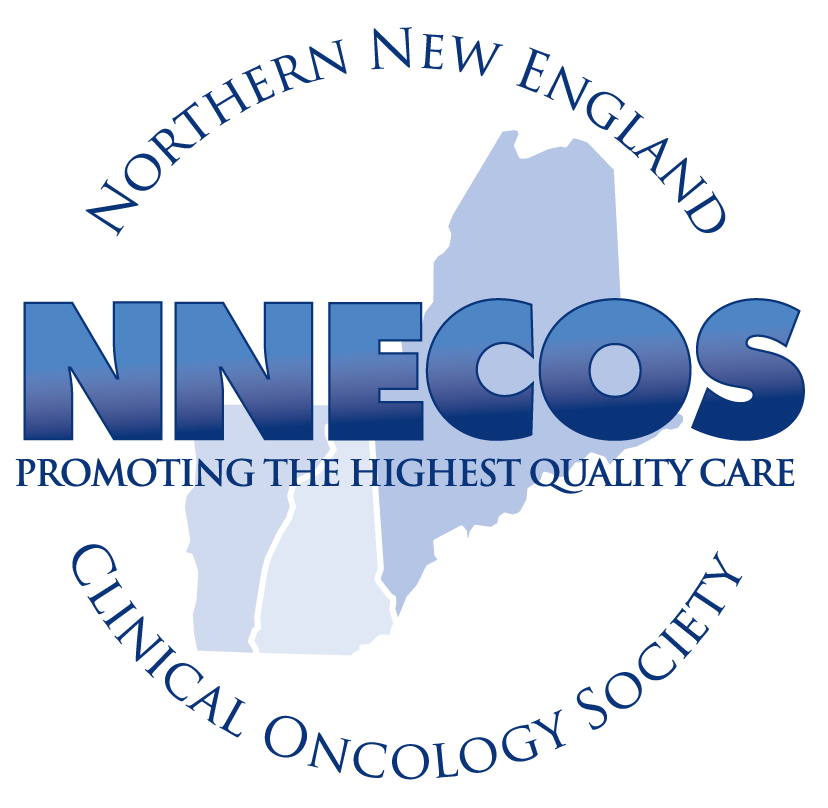A Status Report on SB 137, A Bill to Create Parity Between the Out of Pocket Costs of Oral Anti-neoplastic and Parenteral Anti-neoplastics in NH
May 25, 2015
Denis B. Hammond, MD
Bill Introduction in the Senate
Senator Jeb Bradley introduced SB 137 in the New Hampshire Senate on March 24, 2015. In summary, this bill specifies that a health insurance beneficiary who has an insurance policy regulated by the State of New Hampshire will not be required to pay out of pocket costs that are greater for an oral anti-neoplastic than for an intravenous anti-neoplastic. The bill sailed through the Senate Commerce Committee and was passed unanimously by the NH Senate.
SB 137 in the House
When SB 137 moved to the NH House the situation was very different. In spite of the fact that 39 states now have similar laws on the books and that SB 137 has been endorsed by a broad coalition of healthcare organizations, many members of House Commerce Committee have voiced opposition to this bill.
Objections and Rebuttal
What follows is a partial list of the objections that have been stated by members of the House Commerce Committee, with my rebuttals in italics.
1. SB 137 is not needed because:
a. Very few people pay very high co-pays for oral anti-neoplastics.
The copay for parenteral anti-neoplastics at the time of service is usually the office co-pay, $25 -50. The co-pay at the time of obtaining an oral anti-neoplastic is usually a percent of the total cost, for example 20% of the total cost of a one month supply of the medication. A month of Gleevec for example, costs about $8,500. 20% of that is $1,700. So a patient a patient would have to pay $1,700 at the time they picked up this medication if their insurance pharmacy plan had this type of structure.
b. Most people have insurance regulated by the Affordable Care Act (ACA) that limits out of pocket costs to $6,600 per individual per year or $13,200 per family per year, so most people are protected from high out of pocket costs.
The good news is that one would reach the ACA maximum out of pocket costs for an individual in 4 months or for a family in 8 months. The bad news is that the average family income in the US is $52,000 before taxes (probably $44,200 after taxes). Supporting a family on that income, coping with an illness in the family and coming up with $13,200 per year in spare change, is a very tall order. I doubt that most of us could do that.
2. There are very few people on Oral Anti-neoplastics that are on plans that are exempted from the ACA restrictions, the “Grandfathered Plans.”
While that might be true, the fact is that even if you have an ACA compliant plan, the out of pocket expenses can be devastating. There are clear data that show that the higher the out of pocket costs an individual is confronted with, the less likely it is that that individual will stay on an oral anti-neoplastic.
3. Lower Income Individuals who cannot come up with the Out of Pocket ash to obtain an expensive Oral Anti-neoplastic will qualify for payment assistance programs.
The co-pay assistance programs are frequently cumbersome to access and sometimes run out of money. Some drugs companies offer discounts and payment assistance, but these programs vary in their benefits, and can be ended at any time. All this creates an unstable financial environment to support patients on oral anti-neoplastics. These drugs are not elective and frequently have unpleasant side effects, creating further disincentives to comply with treatment.
4. Mandating changes in health insurance plans will create an upward pressure on premiums.
Oral parity legislation was introduced in the NH Legislature five years ago. At that time the legislature authorized the NH Insurance Department to conduct a study to determine what would be the impact on premiums if an Oral Parity Bill were enacted. The results were published in the Compass Health Analytics report of August 9, 2012. This group concluded was that the increase in premiums due to an Oral Parity Law would be less than 10 cents per member per month.
Current Status
Because of these objections and in spite of the rebuttals that supporters of the Bill have put forward, the House Commerce Committee voted on May 19, 2015 to retain the Bill in Committee. While the Bill will go to the House for an up or down vote, the lack of endorsement by the committee of jurisdiction is likely to lead to a defeat in the House.
The Fight Is Not Over!
There is still time to contact your NH State Representative and tell them why passage of SB 137 would benefit your patients. Also, if you have a patient who has incurred high out of pocket costs for an oral anti-neoplastic, please ask them to contact their legislator and tell the representative their story. We may still be able to salvage SB 137 in the full House. You can find out the information you need to contact your representative at: http://www.gencourt.state.nh.us/house/members/housemembers.html
Thanks for your help in this fight to benefit our patients on oral anti-neoplastic drugs.

